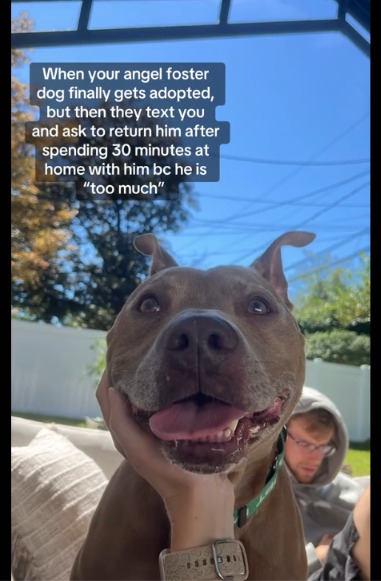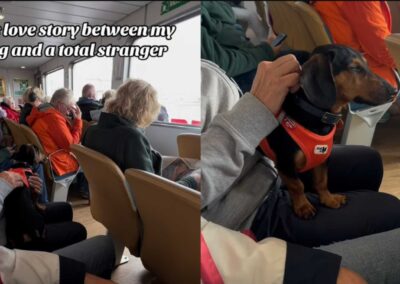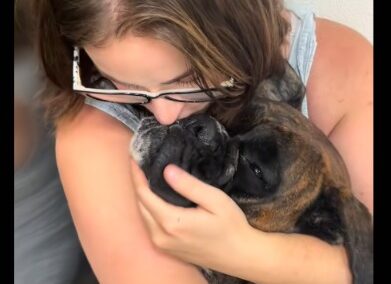
Six-year-old Scooby seemed like he was getting his happy ending—until just thirty minutes later, his world shifted again.
Scooby, once a stray rescued and sheltered in Baltimore, had found a foster mom in Sophia Roth.
From the moment he arrived in early July, it was obvious he’d had a home once: he knew commands, liked sleeping under covers, and walked like he understood love.
Sophia’s foster time with him was full of promise.
Over three weeks, Scooby’s personality blossomed. He soaked up walks, hikes, toy-play, and cuddles.
Something new began to show: excitement when the toy bin was brought out, curiosity in playing with toys—things he seemed to have never really done before.
Sophia described him as affectionate, high-spirited, needing a bit of structure, but nothing unmanageable.
Then came the adoption. A family stepped forward. It looked like everything had finally aligned.
Sophia felt hopeful. Scooby was being led to his forever home, where someone had chosen him.

But just half an hour later, Sophia got a text: the family wanted to return him.
“He’s too high-energy,” they said. They weren’t willing to help him settle in, or invest in manners.
They hadn’t given him time to adjust, something foster carers know is rarely instantaneous.
The blow was sharp. Sophia admits she felt anxiety, frustration, and heartbreak. Scooby, meanwhile, was left “sad and confused” at the shelter.
But foster care isn’t just about heartbreak—it’s about the bounce-back. In a few days, the fog of displacement cleared.
Scooby found comfort again in Sophia’s care.
Then, from that pain came opportunity. After he was returned, adoption applications flooded in.
In a turn of luck, another couple rose to the occasion.
They brought more experience, matched the breed, had volunteered before, and understood what Scooby needed.
Now, Scooby has finally set off for a home that has a better shot at being forever.
Sophia says she’s confident this new home might be it—these folks know what they’re doing.
They’re prepared for energy, willing to give space, to train, to decompress.
The experience taught Sophia—and all of us—something important: rescue dogs need more than adoption papers.
They need patience, understanding, and time. What seems like “too much” energy could just mean someone skipped over what this dog needs to settle in.
In the end, Scooby didn’t give up, and neither did the people who believed in him.
After a moment of disappointment, he found a family who seems ready to let his heart catch up to his feet.
And sometimes that’s exactly how rescue stories are meant to end: with more care, more compassion, and a bit of faith.



